OUR SUCCESSES FOR INDIVIDUALS:
WORLD-CLASS CLIENTS. WORLD-CLASS RESULTS.
Green Card Client Spotlight:
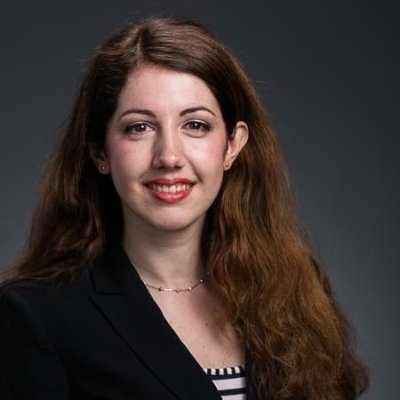
MILENA LAZOVA, PH.D.
CASE TYPE: NATIONAL INTEREST WAIVER
MILENA LAZOVA, PH.D.
Case type: National Interest Waiver
Position at the time of filing: Postdoctoral Fellow, MIT Department of Biology
Country of birth: Bulgaria
Degree: Ph.D. Systems Biology, VU University / FOM Institute AMOLF Amsterdam, The Netherlands
Honors and awards: Rubicon Postdoctoral Fellowship Netherlands Organization for Scientific Research
Citations at the time of filing: 72
Status at the time of filing case with USCIS: J-1
We are so proud of our client, friend, and fellow crêpe and outdoor enthusiast Dr. Milena Lazova on obtaining her National Interest Waiver (NIW) and green card! We had the great privilege of meeting Dr. Lazova in March of 2014 when she attended a Casseus Law Question and Answer Session.
Dr. Lazova’s signature achievement is in the study of chemotaxis, the process that microorganisms use to sense and respond to changes in chemical concentrations in their environment. Dr. Lazova’s novel research on Escherichia coli (Lazova MD et al, PNAS, 2011) demonstrated for the first time a sophisticated sensory response in bacteria called fold-change detection: the ability to faithfully respond and adapt to small changes in its environment. A useful skill when searching out food or nutrients. Dr. Lazova is first author on the paper describing this discovery, which was published by the preeminent journal Proceedings of the National Academy of Sciences (PNAS).
Casseus Law drafted eight letters of support for Dr. Lazova that were signed by the most prominent individuals in her field who spoke about the importance of her work. The firm handled every aspect of Dr. Lazova’s case including assembling and organizing exhibits, supporting documents and USCIS forms including forms: I-140 (Immigrant Petition for Alien Worker), I-485 (Green Card Application) and I-765 (Work Authorization).
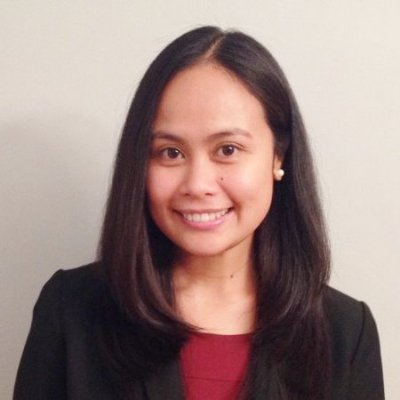
REINA IMPROGO, PH.D.
CASE TYPE: NATIONAL INTEREST WAIVER
REINA IMPROGO, PH.D.
Case Type: National Interest Waiver
Position at the time of filing: Postdoctoral Fellow at Harvard Medical School, Dana-Farber Cancer Institute, and the Broad Institute of MIT and Harvard
Country of Birth: The Philippines
Degree: PhD, Biomedical Sciences, University of Massachusetts Medical School
Citations at the time of filing: 159
Status at the time of filing: H-1B
Dr. Improgo has made numerous contributions to the field of oncology. She has made exceptional discoveries on drug targets for the deadly cancer Small Cell Lung Carcinoma (SCLC) and the prevalent cancer Chronic Lymphocytic Leukemia (CLL). Dr. Improgo has successfully worked in the fields of biomedical sciences and cancer research for more than 18 years. As a result of her influence on the field of lung cancer, her work was cited multiple times in the 2014 US Surgeon’s General’s Report entitled “The Health Consequences of Smoking—50 Years of Progress.
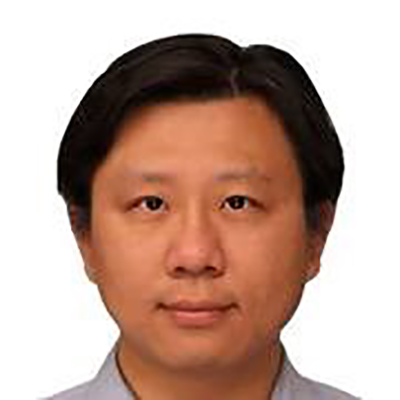
CHUN-LIN LOUIS CHANG, PH.D.
CASE TYPE: NATIONAL INTEREST WAIVER
CHUN-LIN LOUIS CHANG, PH.D.
Case Type: National Interest Waiver
Position at the time of filing case: Postdoctoral Researcher, Research Laboratory of Electronics, MIT
Country of Birth: Taiwan
Degree: PhD, Electrical Engineering, Institute of Photonics and Optoelectronics, National Taiwan University
Citations at the time of filing: 230
Status at the time of filing case with USCIS: J-1, Casseus Law assisted Dr. Chang in obtaining a J-1 waiver
Dr. Chang is an outstanding laser and optics scientist who develops high power solid-state and fiber laser technologies with the duration from nanoseconds to femtoseconds and the wavelength from DUV to Mid-IR. Furthermore, he successfully demonstrated its applications on generating novel tabletop EUV/X-ray source based on different kinds of laser-matter interactions. At MIT, he developed the most energetic picosecond laser system to pump optical parametric chirped-pulse amplifier laser system in multi-colors, and thus demonstrated the high flux coherent x-ray source with the wavelength extending to water-window X-ray based on high harmonic generation for future biomedical microscopy light source. At NTU, from scratch, he developed a high intensity diode-seeded monolithic fiber amplifier laser system and thus successfully created the tabletop EUV metrology source from a laser-heated hot and dense tin plasmas. During his time at Academia Sinica, he demonstrated the high energy monoenergetic electron beam for tabletop hard X-ray generation based on betatron oscillation, and designed several plasma shaping techniques driven by multiple prepulse to improve electron beam quality and become unprecedented tomographic diagnostics.
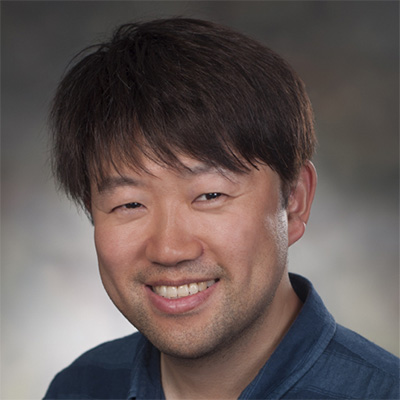
YONG JOO AHN, M.D.
CASE TYPE: NATIONAL INTEREST WAIVER
YONG JOO AHN, M.D.
Case type: National Interest Waiver
Position at the time of filing: Research Assistant Professor, Department of Clinical Lab. Sciences, University of Texas Health Center at San Antonio
Country of birth: South Korea
Degree: M.S. in Pharmacology & M.D. in Medicine, Kyung Hee University, School of Medicine
Citations at the time of filing: 61
Status at the time of filing case with USCIS: H-1B
Dr. Ahn is an extraordinary researcher in the field of stroke and neurovascular research. He has made and continues to make outstanding contributions to the field. His research on strokes touches upon critical issues while developing a unique and novel framework. Dr. Ahn’s findings have provided a new perspective for studying the signaling pathways of brain and vascular mechanisms. He is internationally known for his work in discovering the basic mechanism of protein and protein kinase’s role in providing therapies for treating and preventing strokes.
Dr. Ahn’s work has benefited the international scientific community through his contribution of finding therapeutic targets to treat and cure vascular occlusive diseases such as heart attacks, strokes, and blood clots. Additionally, Dr. Ahn’s novel work demonstrated that platelet specific Tsc1 deficient mutation protects against arterial thrombosis and thrombotic stroke. This finding is the first report of the role of Tsc1 in cardiovascular and neurovascular field. In this sense, Dr. Ahn’s research substantially widened the selection pool of thrombosis target therapies.
Dr. Ahn has presented his work to thousands of researchers globally and nationally over the course of his 10- year career in the field of stroke and heart research. His groundbreaking research on strokes and heart disease has far-reaching implications that benefit the global scientific community.
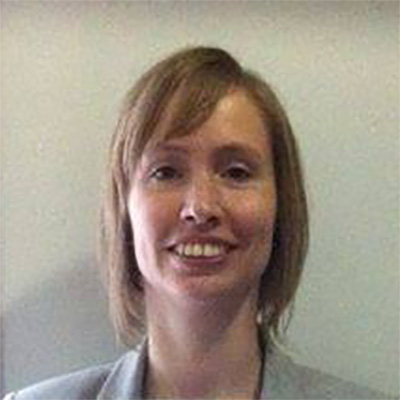
KAREN DE CEUNYNCK, PH.D.
CASE TYPE: EB-1B
KAREN DE CEUNYNCK, PH.D.
Case type: EB-1B
Position at the time of filing: Postdoctoral Research Fellow, Beth Israel Deaconess Medical Center, Harvard Medical School
Country of birth: Belgium
Degree: Ph.D., Biochemistry and Biotechnology, Catholic University Leuven, Belgium—Laboratory for Thrombosis Research
Citations at the time of filing: 65
Status at the time of filing case with USCIS: H-1B
Dr. De Ceunynck is highly reputed for her research abilities and is among the few thrombosis young scientist that have a bright and successful future ahead. Because of her exceptional work, Dr. De Ceunynck was accepted for a postdoctoral position at the prestigious Beth Israel Deaconess Medical Center, a teaching hospital affiliated with Harvard Medical School. As a postdoctoral fellow in the lab of Professor Robert Flaumenhaft at Harvard Medical School, she is leading research to determine how parmodulins activate a cytoprotective signaling pathway in endothelial cells in vitro and in vivo. PAR1 inhibitors that have been developed so far block all pathways, pathological as well as protective pathways. Parmodulins are unique in that they block pathological responses while simultaneously eliciting protective effects in endothelial cells. These compounds provide an alternative strategy to interfere with complex thrombotic and inflammatory disorders. Hence, Dr. De Ceunynck’s research has important implications for many medical conditions including diseases such as heart attack and sepsis (blood infection).
Dr. De Ceunynck’s history of accomplishment in the field of thrombosis research is recognized by her peers and scientific organizations and institutions around the world. Her publications increase the level of knowledge and scholarship across the field. She contributes to advancing research both through her own research and by sharing her research with others. Dr. De Ceunynck’s accomplishments are of fundamental importance to understanding the causes of and devising new treatments for sepsis, heart attack, stroke and related clotting injuries. Her work is of great importance to the health of Americans and people all over the world who are affected by these diseases.
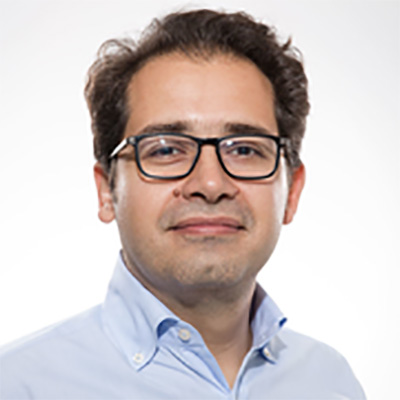
MARTIN PIERRE HAUTEFEUILLE, PH.D.
CASE TYPE: NATIONAL INTEREST WAIVER
MARTIN PIERRE HAUTEFEUILLE, PH.D.
Case type: National Interest Waiver
Position at the time of filing: Postdoctoral Associate in the Department of Aeronautics and Astronautics at the Massachusetts Institute of Technology
Country of birth: France
Degree: Ph.D., Mechanical Engineering, Université Technologique de Compiègne
Citations at the time of filing: 229
Status at the time of filing case with USCIS: H-1B
Dr. Hautefeuille is an outstanding scientist who has made significant contributions to the field of mathematical modeling. One of his most notable contribution to the field of mechanical engineering was his work as a co-developer of a computer model of the Boston Marathon bombing to help identify the impact that the blasts had on the brains of the victims of the bombing. From a simulation of the blast generated by the bomb, Dr. Hautefeuille characterized the pressure of the blast at different locations. He then used the pressure at these locations to compute the maximal pressure inside the brain of the victims. Knowing the maximal pressure inside their brain, Dr. Hautefeuille is able to make supported analysis regarding the risk of traumatic brain injury due to the blast. His work is relevant on both a national and international scope and is of substantial importance to US National Interest given the ongoing conflicts in the Middle East. The U.S. military is continuously seeking ways to protect soldiers and military personnel from bomb threats. A better understanding of how explosive forces translate into brain damage is necessary to better diagnose and treat bTBI in our veterans. The novel outcome of Dr. Hautefeuille’s project is to provide, for the first time, an experimental setup of shock tube with predictable characteristics. Dr. Hautefeuille’s semi-analytical model has been guided and validated against numerical simulations conducted with an in-house computational framework, a testament to Dr. Hautefeuille’s genius.
Dr. Hautefeuille has an international reputation for being among the top computer scientists in the world. He is highly-regarded for his work on computer simulations and has been the author of numerous internationally circulated journal publications and book chapters. Dr. Hautefeuille’s original work on mathematical modeling and computer simulations have been cited over 200 times.
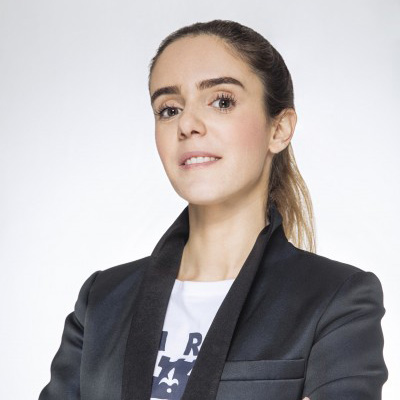
AURÉLIE JEAN, PH.D.
CASE TYPE: NATIONAL INTEREST WAIVER
AURÉLIE JEAN, PH.D.
Case type: National Interest Waiver
Position at the time of filing: Software Developer Consultant at ParaSim, Inc (USA) and Postdoctoral associate at Massachusetts Institute of Technology (MIT) (USA)
Country of birth: France
Degree: PhD, Material Sciences and Engineering, Mines ParisTech
Citations at the time of filing: 134
Status at the time of filing case with USCIS: H-1B
Dr. Jean has been a pioneer in contributing to the understanding of consequences of blast waves and how they impact the head of a human exposed to the detonation of an improvised explosive device from both, civil (Boston Marathon bombing on April 15th 2013) and military (conflicts in Iraq and Afghanistan/conflicts since 2003) contexts. More precisely, she computed from large-scale simulations the peak of pressure inside the brain of a human as well as the areas of the brain that were damaged in order to characterize the risk of blast-induced traumatic brain injury. Currently, she is developing novel computational models of the human head and more realistic mathematical models of the mechanical response of the human head constitutive tissues such as the skull and the brain tissues. In addition to developing mathematical and computational models of human tissue morphologies and mechanical response, Dr. Jean is implementing big data computational frameworks and her own computer software that she uses as a tool to simulate the mechanical behavior of human tissues and organs (heart, brain or bone). This software is a key component of her outstanding international reputation because her modeling approach combined with custom made software that she co-developed, have allowed her to reach some key explanations to problems that remain difficult to solve only via experiments. Cardiovascular disease remains the first cause of death in the United States and Dr. Jean’s work as well as a strong collaboration between medical doctors, computational scientists and engineers will contribute to give people a longer, better quality of life.
Dr. Jean has played a critical role in numerous projects that are of national scope and importance. Her work on developing a novel computer software capable of overcoming the limitations of currently available software in solid mechanics have been fundamental to large-scale ballistic impact simulations on highly biofidelic human head models, to massively parallel simulations of crack propagation within large sized materials. At the Institute for Soldier Nanotechnologies, Dr. Jean joined a research effort funded by the US Army and the Office of Naval Research aimed at helping to design protective solutions against blasts. Dr. Jean’s work has been cited over 132 times by researchers in her field. She is a leader in mathematical modeling and computer programming and her skills are in high demand as the nation is seeking to enhance its use of big data and software systems. The impact of her work makes her invaluable to the US interest in keeping military personnel safe and also civilians safe from bombs. Her appointment to leading roles at the Massachusetts Institute of Technology was critical to the continued excellence of the institution, and it evidences her stellar reputation.
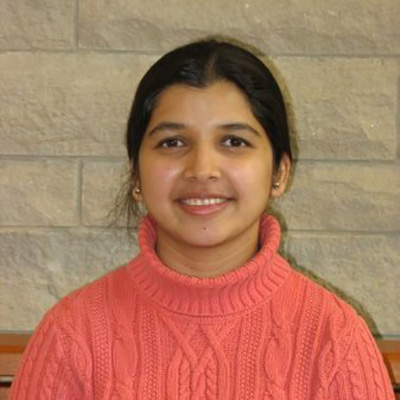
SIDDHA NARAYAN KASAR, PH.D.
CASE TYPE: EB-1B
SIDDHA NARAYAN KASAR, PH.D.
Case type: EB-1B
Position at the time of filing: Post-doctoral Fellow at Dana-Farber Cancer Institute
Country of birth: India
Degree: Ph.D., Molecular Pathology and Immunology, University of Medicine and Dentistry of New Jersey
Citations at the time of filing: 55
Status at the time of filing case with USCIS: H-1B
Dr. Kasar is a recognized expert and outstanding researcher in the field of Chronic Lymphocytic Leukemia (CLL). Over the past 7 years, Dr. Kasar has made many pioneering discoveries in the genetics of CLL. CLL is the most common form of leukemia in the United States and there are no effective cures. Dr. Kasar’s research involves some of the most comprehensive genetic sequencing of CLL ever done. Dr. Kasar is working to developing a more complete genetic map of the patients who do not respond to treatment at the outset or develop resistance to treatment over time. The goal is to identify the mutations which lead to treatment resistant CLL. By systematically comparing the genomes of pre and post treatment tumors, Dr. Kasar has discovered multiple mutations that potentially cause resistance. The eventual goal is to better equip doctors with information to match a patient with the most effective treatment at diagnosis. With this information, we can begin to find ways to circumvent resistance.
Dr. Kasar has a history of conducting pioneering research, and her work has contributed greatly to expanding the current body of knowledge regarding CLL. Her contributions to oncology research have been tremendous. Her genetic sequencing and molecular biology laboratory skills place her in the top reaches of the cancer research field. With her exceptional research skills, Dr. Kasar has impacted the medical field, which is vital to the health and well-being of people around the globe.
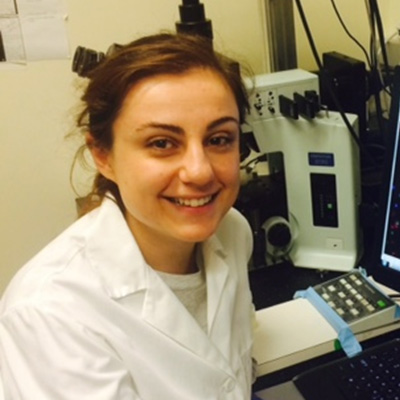
SECIL KOSEOGLU, PH.D.
CASE TYPE: EB-1B
SECIL KOSEOGLU, PH.D.
Case type: EB-1B
Position at the time of filing: Postdoctoral Associate at the Division of Hemostasis Thrombosis, Beth Israel Deaconess Medical Center, Harvard Medical School
Country of birth: Turkey
Degree: Ph.D., Chemistry, University of Minnesota
Citations at the time of filing: 120
Status at the time of filing case with USCIS: H-1B
Dr. Koseoglu is a recognized expert in analytical chemistry. Over the past 7 years, Dr. Koseoglu has made many pioneering discoveries in the development of bioanalytical methods for platelet analysis. Dr. Koseoglu has demonstrated a noteworthy level of creativity in her application of tools and strategies that are widely used in neural research to attack problems in hemostasis and thrombosis research. Her results showed the importance of Drp-1 in platelet granular release especially in fusion pore stability. Furthermore, she demonstrated how inhibition of this novel protein in platelets can prevent thrombus (blood clot) formation without disturbing fibrin generation in vivo. This outstanding work showed that Drp-1 can be a possible therapeutic target to prevent thrombus formation. This work is particularly important based on the fact that blood clots are a major life-threatening occurrence for people who encounter them. More recently, Dr. Koseoglu’s work has demonstrated the role of Vesicle-associated membrane protein 7(VAMP-7) in platelet spreading and granular secretion. This eye-opening work has had a huge influence on the platelet society and will change the way platelet secretion is studied by the entire scientific community.
Given her distinctive background in both electroanalytical chemistry and platelet secretion biology, Dr. Koseoglu represents a unique source for the scientific community. In addition to being an excellent researcher, she is a very talented mentor and instructor with her broad scientific training and intellectual curiosity. Dr. Koseoglu has all the features of an outstanding researcher. She is respected by colleagues, is pursuing innovative research that will ultimately fulfill the commitment to improve the health of individuals nationwide.
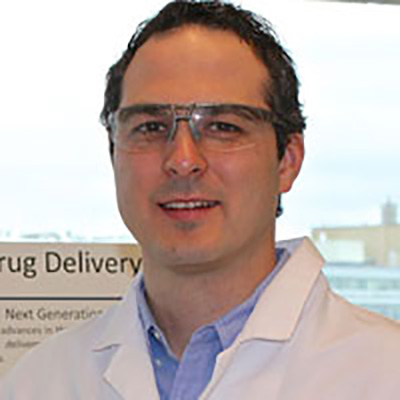
MATTHIAS OBERLI, PH.D.
CASE TYPE: NATIONAL INTEREST WAIVER
MATTHIAS OBERLI, PH.D.
Case type: National Interest Waiver
Position at the time of filing: Postdoctoral Fellow
Country of birth: Switzerland
Degree: PhD, Organic Chemistry, ETH Zurich and Max Planck Institute, Berlin
Citations at the time of filing: 256
Status at the time of filing case with USCIS: J-1
Dr. Oberli pioneered work on diseases that are acquired in hospital settings also known as nosocomial diseases. Roughly 1.7 million hospital-associated infections, from all types of microorganisms, including bacteria, combined, cause or contribute to 99,000 deaths each year, according to the Centers for Disease Control and Prevention. Dr. Oberli’s work in studying how organisms and humans react to vaccine candidates is helping to solve the nationally important problem of hospital-acquired diseases. His work also has important applications in other disease vaccine research as many pathogens, bacteria and viruses alike, carry distinct polysaccharides on the cell surface. These structures make excellent future targets for development of diagnostic tests and vaccine candidates. Dr. Oberli synthesized carbohydrate vaccine candidates against bacillus anthracis and clostridium difficile. In addition to his history of accomplishment in disease and cancer treatment at ETH Zürich and the Max Planck Institute in Berlin, Dr. Oberli is performing pioneering research in his current position at the Massachusetts Institute of Technology (MIT). While new carbohydrate conjugate vaccines can be used to prevent disease, their delivery to the body is also an important medical problem. At MIT, Dr. Oberli is looking into vaccine delivery to the skin using ultrasound. Vaccines delivered by syringes into the muscle are effective in raising antibodies. However, they are unable to activate the cellular arm of the immune system, also called “killer cells”. These killer cells can eliminate cancer cells and cells infected with viruses. Therefore, innovative vaccine delivery methods will help by activating this arm of the immune system and hence be key to treating cancer and infections such as HIV, HPV, or herpes.
Dr. Oberli is currently a Postdoctoral Fellow at the Massachusetts Institute of Technology (MIT). Throughout his career, Dr. Oberli has designed and executed laboratory experiments that have led to several first-authored publications and over 150 citations. In 2011, in recognition of his expertise in biomedical chemistry, Dr. Oberli was awarded a postdoctoral fellowship from the Novartis Foundation to work at MIT where he is now doing novel work in delivering vaccines to the skin through ultrasound technology. He is pushing technology and vaccine research to the next level and is well respected in the national and international research community. Researchers from all over Europe, Asia and The United States have cited and learned from his remarkable work.
